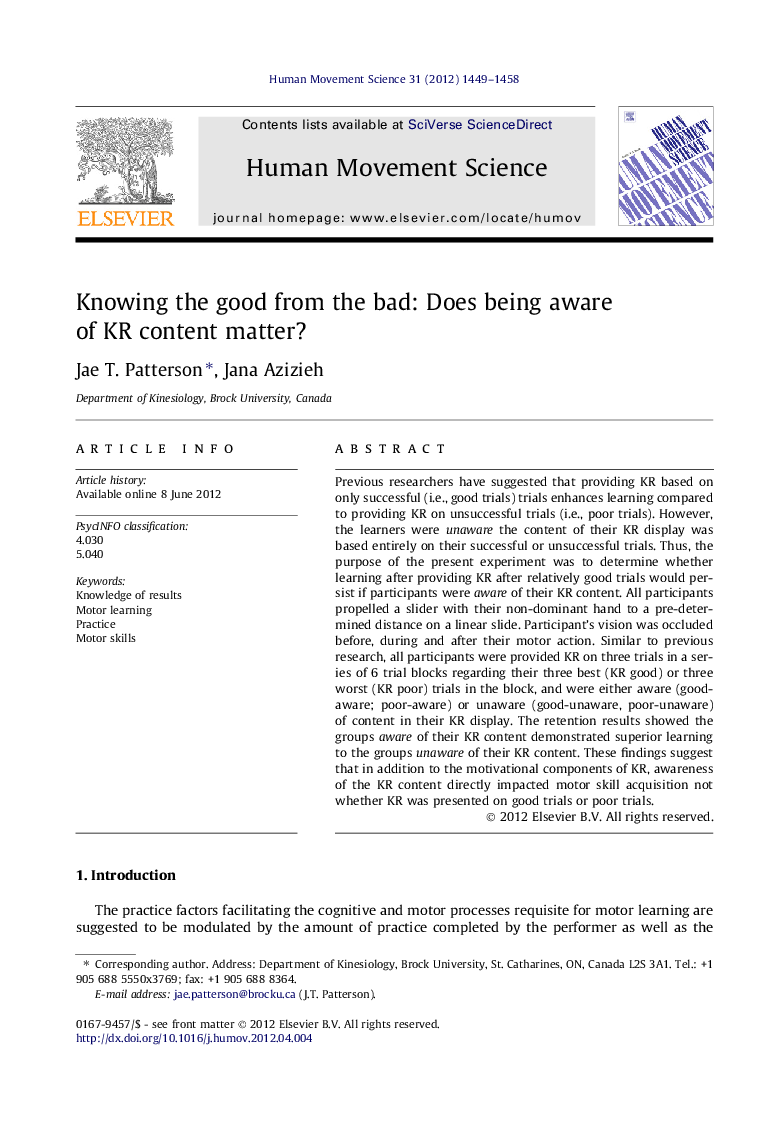| Article ID | Journal | Published Year | Pages | File Type |
|---|---|---|---|---|
| 928509 | Human Movement Science | 2012 | 10 Pages |
Previous researchers have suggested that providing KR based on only successful (i.e., good trials) trials enhances learning compared to providing KR on unsuccessful trials (i.e., poor trials). However, the learners were unaware the content of their KR display was based entirely on their successful or unsuccessful trials. Thus, the purpose of the present experiment was to determine whether learning after providing KR after relatively good trials would persist if participants were aware of their KR content. All participants propelled a slider with their non-dominant hand to a pre-determined distance on a linear slide. Participant’s vision was occluded before, during and after their motor action. Similar to previous research, all participants were provided KR on three trials in a series of 6 trial blocks regarding their three best (KR good) or three worst (KR poor) trials in the block, and were either aware (good-aware; poor-aware) or unaware (good-unaware, poor-unaware) of content in their KR display. The retention results showed the groups aware of their KR content demonstrated superior learning to the groups unaware of their KR content. These findings suggest that in addition to the motivational components of KR, awareness of the KR content directly impacted motor skill acquisition not whether KR was presented on good trials or poor trials.
► Learning based on awareness of the KR information, not solely the KR information. ► Motivation to learn motor task independent of KR information or degree of awareness. ► KR precision important factor modulating motor learning.
